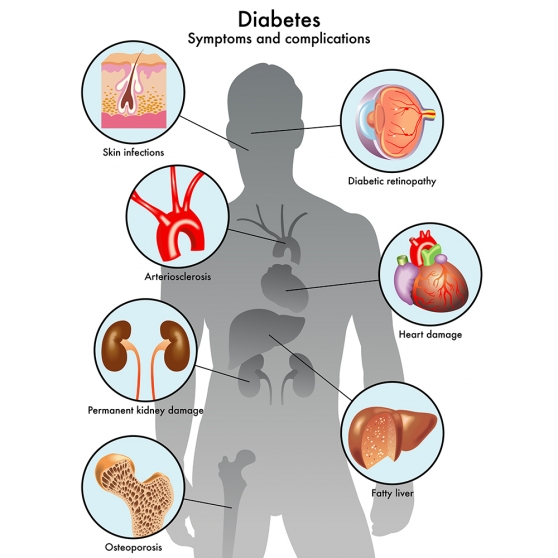Diagnosing Diabetes
Diabetes is a condition in which the body does not properly process food for use as energy. Most of the food we eat is turned into glucose (sugar) for our bodies to use for this purpose. The pancreas makes a hormone called insulin to help glucose reach the cells in the body. In patients with diabetes, the body either doesn't make enough insulin or can't properly use its own insulin. This causes sugars to build up in the blood. According to the US Centers for Disease Control and Prevention (CDC), diabetes can cause serious health complications, including heart disease, blindness and kidney failure. Diabetes is also the seventh leading cause of death in the US, according to the CDC.
Reviewed by:
Review Date:
August 13, 2015Citation:
Image courtesy of Arne9001 | Dreamstime.com Image courtesy of Rob3000 | Dreamstime.com Image courtesy of Stuart Miles | Dreamstime.com Image courtesy of Sherry Young | Dreamstime.com Image courtesy of Vetre Antanaviciute-meskauskiene | Dreamstime.com Image courtesy of Dragonimages | Dreamstime.com Image courtesy of Jean Paul Chassenet | Dreamstime.com Image courtesy of Nyul | Dreamstime.com Image courtesy of Designer491 | Dreamstime.com RxWiki, "Diagnosing Diabetes"
Last Updated:
August 13, 2015
